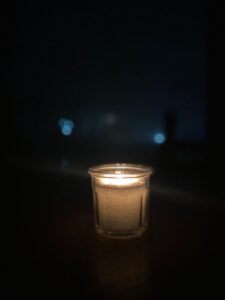Disconnected in the Connected World: Internet Blackout
Disconnected in the Connected World: Internet Blackout
Md Anwarul Islam
The recent quota-reform movement in Bangladesh has brought the country to a significant historical moment, resulting in the deaths of more than two hundred people, including students and law enforcing agencies. Under the existing quota policy, only 44 percent of government recruitment was based on merit, while the remaining 56 percent was allocated to freedom fighters and their children, district quotas, women, and underprivileged communities. Students opposed this quota system and demanded its reform. Initially, university students across Bangladesh engaged in peaceful protests, rallies, and other activities, calling their efforts the “Anti-Discrimination Students’ Movement.” On July 7, they initiated a nationwide “Bangla Blockade,” obstructing roads and railways with demonstrations in major cities. As the protests escalated, they spread across the entire country, leading to violent incidents. The students’ demand for quota reforms resulted in significant clashes with law enforcement. On Thursday, July 18, around 9 PM, the entire country experienced an internet blackout, with all mobile and broadband services suspended, rendering social media inaccessible. This was followed by a nationwide curfew imposed by the government.
—While Millennials can recall a time without the internet, this is not the case for Gen Z and subsequent generations—
While Millennials can recall a time without the internet, this is not the case for Gen Z and subsequent generations. Consequently, the current internet blackout in Bangladesh represents an unprecedented disruption, leaving the youth uncertain about how to cope. With internet connection suspended, daily life has come to a halt and halting all internet-based activities. People have not experienced such a disruption, especially after becoming heavily dependent on internet-based systems. The digital transformation of utility services, tourism, online education, transportation, freelancing, business, export industries (notably the garment industry), and banking has been suspended. People are unable to recharge their prepaid electricity and cooking gas meters or send money through mobile and e-channels. As a result, numerous households are suffering from power shortages and are without light, prompting crowds at power station offices to recharge their meters. Children’s online learning sessions via Zoom or Google Meet and entertainment through YouTube have also been halted.
 I had several pending tasks, including signing a copyright form for a journal publisher, proofreading an accepted journal paper, meeting a fellowship application deadline, and attending an online research meeting. Normally, I would check newsfeeds on Facebook, Twitter, BBC, CNN, and other online news portals, but this has stopped. With the university closed indefinitely, there are no classes, research supervision, or other academic activities. My daily routine has changed, and at some points I feel anxious and unsure of what to do. When I see that all my cloud services like Dropbox, GitHub, Drive, and Email are inactive, I feel lost. The truth is, the impact of the internet shutdown is frustrating. Neither my kids nor I are used to this new reality. This total lack of connection is very frightening. My seven-year-old son Arham cannot join his online Codingal class, which he has been attending since 2023. During the COVID-19 pandemic, we were physically isolated but remained virtually connected. Life continued somehow as we managed work, education, and other responsibilities from home. The super communication software Zoom solved all our operational problems. However, during this internet blackout, the disconnection makes us more vulnerable. Teachers and school authorities are similarly confused and worried. Previously, they could run the school online, but now they cannot do so due to the connectivity issue. The current situation has left them helpless, unable to connect with parents or provide any updates.
I had several pending tasks, including signing a copyright form for a journal publisher, proofreading an accepted journal paper, meeting a fellowship application deadline, and attending an online research meeting. Normally, I would check newsfeeds on Facebook, Twitter, BBC, CNN, and other online news portals, but this has stopped. With the university closed indefinitely, there are no classes, research supervision, or other academic activities. My daily routine has changed, and at some points I feel anxious and unsure of what to do. When I see that all my cloud services like Dropbox, GitHub, Drive, and Email are inactive, I feel lost. The truth is, the impact of the internet shutdown is frustrating. Neither my kids nor I are used to this new reality. This total lack of connection is very frightening. My seven-year-old son Arham cannot join his online Codingal class, which he has been attending since 2023. During the COVID-19 pandemic, we were physically isolated but remained virtually connected. Life continued somehow as we managed work, education, and other responsibilities from home. The super communication software Zoom solved all our operational problems. However, during this internet blackout, the disconnection makes us more vulnerable. Teachers and school authorities are similarly confused and worried. Previously, they could run the school online, but now they cannot do so due to the connectivity issue. The current situation has left them helpless, unable to connect with parents or provide any updates.
Life without the internet, whether seen as a boon or a curse, certainly requires a lot of unlearning and relearning. As I wait for things to return to normal, I hope to use this unexpected time to reduce my dependency and online addiction, especially regarding social activities. It’s a reminder that returning to hobbies is always an option, even when the internet is back. We are spending more time together as a family since the pandemic. My kids are delighted to play with both me and their mother. Meanwhile, I am finally reading the book “Surrounded by Idiots” by Thomas Erikson. I’m also savoring the coffee I bought but never had the chance to make at home. I’ve been rearranging my bookshelves, helping my kids with mental math problems (tasks we previously relied on a tutor for), and enjoying more sleep by going to bed together. Earlier days due to Zoom meetings with my research collaborator in Eastern Time, I often went to bed late. Now, my kids are surprised and happy to hear bedtime stories from me. During an evening walk, I received a call from my kids saying, “Baba, the internet is back but slow.” I rushed back to home and sat at my desk to work. Broadband internet services were partially restored in various areas on July 23, while mobile internet remained suspended.
I read the printed newspaper daily, watched TV channels, and talked to my colleagues and friends to stay informed. I realized that internet blackouts increase the need for resilience in our digital world. When online access is suddenly cut off, individuals and communities must quickly adapt to maintain communication, access information, and continue daily activities. Developing robust strategies and backup plans to cope with these disruptions is essential. This includes fostering digital literacy, creating offline alternatives for essential services, and ensuring people have the skills and tools needed to navigate periods without internet access. By enhancing our resilience, we can better withstand the challenges posed by unexpected internet outages.
Cite this article in APA as: Islam, Md A. Disconnected in the connected world: Internet blackout. (2024, August 14). Information Matters, Vol. 4, Issue 8. https://informationmatters.org/2024/08/disconnected-in-the-connected-world-internet-blackout/





